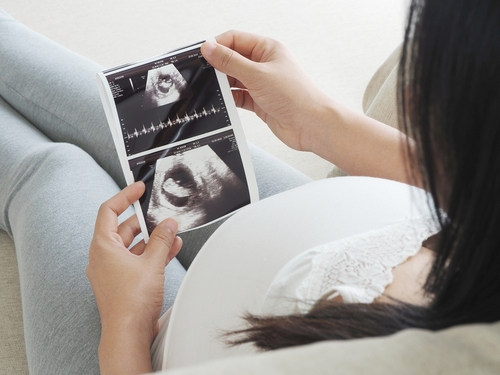Pregnant Women Who Develop AAV May Safely Be Treated with Rituxan, Case Report Suggests
Written by |

Pregnant women who develop ANCA-associated vasculitis (AAV) may safely receive Rituxan (rituximab) and corticosteroids, a case study suggests.
However, this is the first study describing Rituxan’s use in pregnant women with vasculitis, and researchers say more evidence of its safety and effectiveness is needed.
The study, “Rituximab induction therapy for de novo ANCA associated vasculitis in pregnancy: a case report,” was published in the journal BMC Nephrology.
Rituxan has been used in pregnant women with cancer or arthritis, resulting in good fetal outcomes. However, its effects in women who developed ANCA-associated vasculitis (AAV) while pregnant has been uncertain.
Researchers now presented the case of a 20-year-old women of Salvadoran descent who arrived at a hospital in Vancouver, Canada, with deteriorating kidney function and nephrotic syndrome (when your body excretes too much protein, indicating kidney damage) when she was 22 weeks pregnant.
A kidney biopsy confirmed a diagnosis of AAV. There was rheumatoid arthritis in members of her family, and she had also been diagnosed with juvenile rheumatoid arthritis at age 12, which was resolved by the time she reached adulthood.
She was treated with methylprednisolone followed by oral prednisone and Rituxan for four weeks. Treatment with azathioprine was initiated while prednisone was tapered off.
The patient delivered her baby at 29 weeks by cesarean section because she was showing symptoms indicative of preeclampsia — a complication of pregnancy involving high blood pressure that can be fatal to both the mother and the baby if left untreated. Its only cure is to deliver the baby.
At the time of delivery, both the mother and the baby had low counts of a type of white blood cell that produce antibodies and protect against infections. However, there were no signs of infection or other complications caused by Rituxan in either the mother or the infant after birth.
“Further investigation is still required to determine the adequacy of the immune response to vaccination in the offspring and it is recommended that live vaccines should be avoided during the first 6 months of life if exposure [to Rituxan] occurred after the first trimester,” investigators wrote.
They stressed the importance of adequate treatment of this “potentially life-threatening maternal condition,” and the need for a multidisciplinary team to provide care.
“Our patient developed preeclampsia and premature delivery even with improvement in markers of her vasculitis with rituximab therapy,” the researchers wrote.
“This outcome emphasizes the high-risk nature of pregnancies in patients with severe renal impairment and systemic inflammatory conditions and the need for specialized obstetrical care from a highly trained interprofessional team.”





